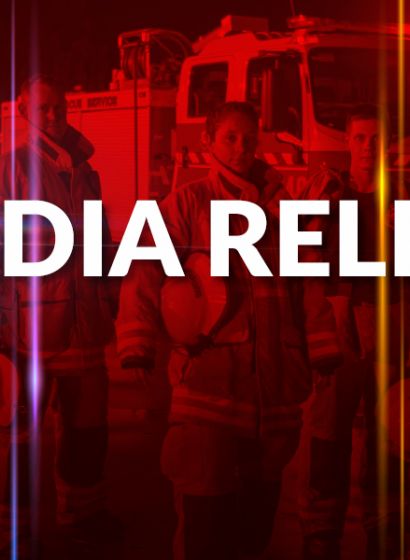Region 2 Regional Controller, Superintendent Daniel Bacon, said that the Bureau of Meteorology advises that a cyclone WARNING is now in place from Maningrida to Groote Eylandt including Maningrida, Milingimbi, Elcho Island, Gapuwiyak, Nhulunbuy and Groote Eylandt. A cyclone WATCH is now in place from Maningrida to Croker Island, including Goulburn Island.
Tropical Cyclone Nathan is currently a category 2 system and is estimated to be 160 kilometres southeast of Nhulunbuy and 165 kilometres east northeast of Alyangula moving west northwest at 21 kilometres per hour.
Gales are expected between Nhulunbuy and Alyangula in the next few hours as Tropical Cyclone Nathan approaches the Northern Territory.
GALES, with gusts up to 125 kilometres per hour, are expected to develop on the coast between Nhulunbuy and Groote Eylandt early this morning and extend west along the north coast between Nhulunbuy and Elcho Island, including Gapuwiyak later this morning. Gales are expected to extend further west to Maningrida during Sunday afternoon and may extend west to Crocker Island overnight on Sunday or Monday morning.
DESTRUCTIVE winds with gusts up to 155 kilometres per hour, extending to approximately 30 kilometres from the centre of the cyclone, may impact coastal and adjacent inland locations between Nhulunbuy and Groote Eylandt early Sunday morning, extending to Elcho Island and Gapuwiyak later this morning.
Heavy rainfall, which may lead to flash flooding, is expected to develop across coastal parts of eastern Arnhem Land as the cyclone approaches tonight and Sunday morning.
Coastal residents between Groote Eylandt and Nhulunbuy are specifically warned of a DANGEROUS STORM TIDE as the cyclone centre crosses the coast. Tides are likely to rise significantly above the normal high tide, with DAMAGING WAVES and DANGEROUS FLOODING.
Communities under WARNING
Superintendent Bacon said that conditions from Groote Eylandt to Nhulunbuy ARE NOW AT A DANGEROUS LEVEL residence are advised to take shelter NOW. DO NOT drive or move about outside, you will be advised by the Territory Controller when it is safe to do so.
“Residents from Gapuwiyak to Maningrida, including Elcho Island and Milingimbi are advised that now is the time to make final preparations to your home shelter or identify which public emergency shelter or strong building to use.
“You should now have your emergency kit complete and ready. DO NOT PROCEED TO PUBLIC EMERGENCY SHELTERS UNTIL ADVISED TO DO SO.
“Private Sector businesses and organisations still open at this time are strongly advised to consider securing and closing their premises. Employers are reminded of their Duty of Care to ensure the safety of any employees still at work.
Communities under WATCH
“For those communities under cyclone WATCH, residents from Maningrida to Croker Island, including Goulburn Island, now is the time to put together your emergency kit, clear your yards and commence home shelter preparations. Fill any water containers you may have to ensure that you have at least three litres of water per person per day for at least 72 hours and fill your vehicles' fuel tanks.
“If you do not have accommodation constructed to the building code or are unsure of your present accommodation you should determine NOW where to shelter. This may include arranging to shelter with family, friends, or in public emergency shelters or appropriately strong buildings that are available in your community.
“Please ensure that friends, family and neighbours have heard and understood this message, particularly new arrivals to the area.
“Tune in to your local radio and/or television stations for further information and warnings,” said Superintendent Bacon.
General
Superintendent Bacon said that the Power and Water Corporation advises that building occupants should fill bath tubs and water containers with water before the cyclone arrives. Do not use chemical or fuel containers to store drinking water. After the cyclone has passed as a precautionary measure, it is recommended that tap water used for drinking and oral hygiene be boiled first and allowed to cool.
Power stations in the communities will continue to operate as long as it is safe to do so.
After a cyclone, downed powerlines might be live and lethal. Stay away and stay safe.
After a cyclone you should flush toilets with a bucket to reduce the likelihood of blockages.
For the latest Bureau of Meteorology Advice go to: www.bom.gov.au
Further information can be found about how to prepare can be found at www.secureNT.nt.gov.au


